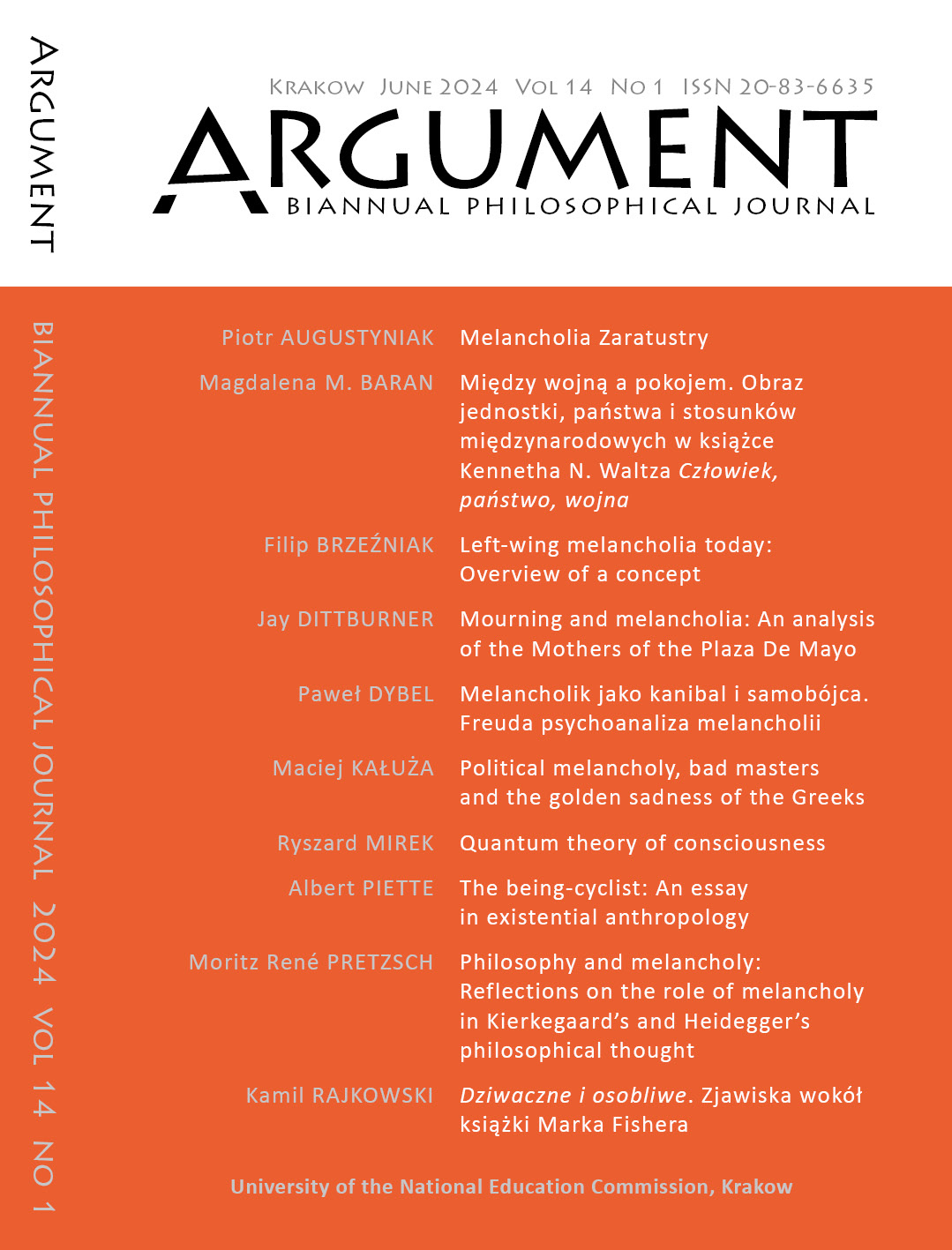Philosophy and melancholy:
Reflections on the role of melancholy
in the Kierkegaard’s and Heidegger’s
philosophical thought
Philosophy and melancholy:
Reflections on the role of melancholy
in the Kierkegaard’s and Heidegger’s
philosophical thought
Author(s): Moritz René PRETZSCHSubject(s): Ancient Philosphy, Philosophy of Middle Ages, Existentialism
Published by: Wydawnictwo Uniwersytetu Komisji Edukacji Narodowej w Krakowie
Keywords: transcendence; self; world; meaning; suffering; authenticity;
Summary/Abstract: In this paper, I would like to address the role of melancholy in Søren Kierkegaard and MartinHeidegger. I will show that both philosophers refer to ancient conceptions of melancholy andmedieval acedia. It can be seen that Kierkegaard’s conceptions of melancholy touch on Aristo-tle’s Problem XXX, 1, on the one hand, and radicalize and universalize the concept of medievalacedia on the other. Likewise, references to the ancient thought of melancholy can also befound in Heidegger’s work, and implications of his Daseinsanalyse can be linked to the medievalconcept of acedia. A large-scale search of Heidegger’s work on the concept of melancholia (asit is still new in the literature) also provides an important overview of the thematic field inHeidegger’s work. I would like to argue that thinking about melancholy in connection with thephilosophy of Kierkegaard and Heidegger helps to understand melancholy as a possibility ofreaching a new understanding of self and world — a reflection on actual values and an openingof philosophical thinking. So, I will show that Heidegger is right in assuming that melancholyis a basic mood of philosophy.
Journal: ARGUMENT: Biannual Philosophical Journal
- Issue Year: XIV/2024
- Issue No: 1
- Page Range: 73-94
- Page Count: 12
- Language: English

